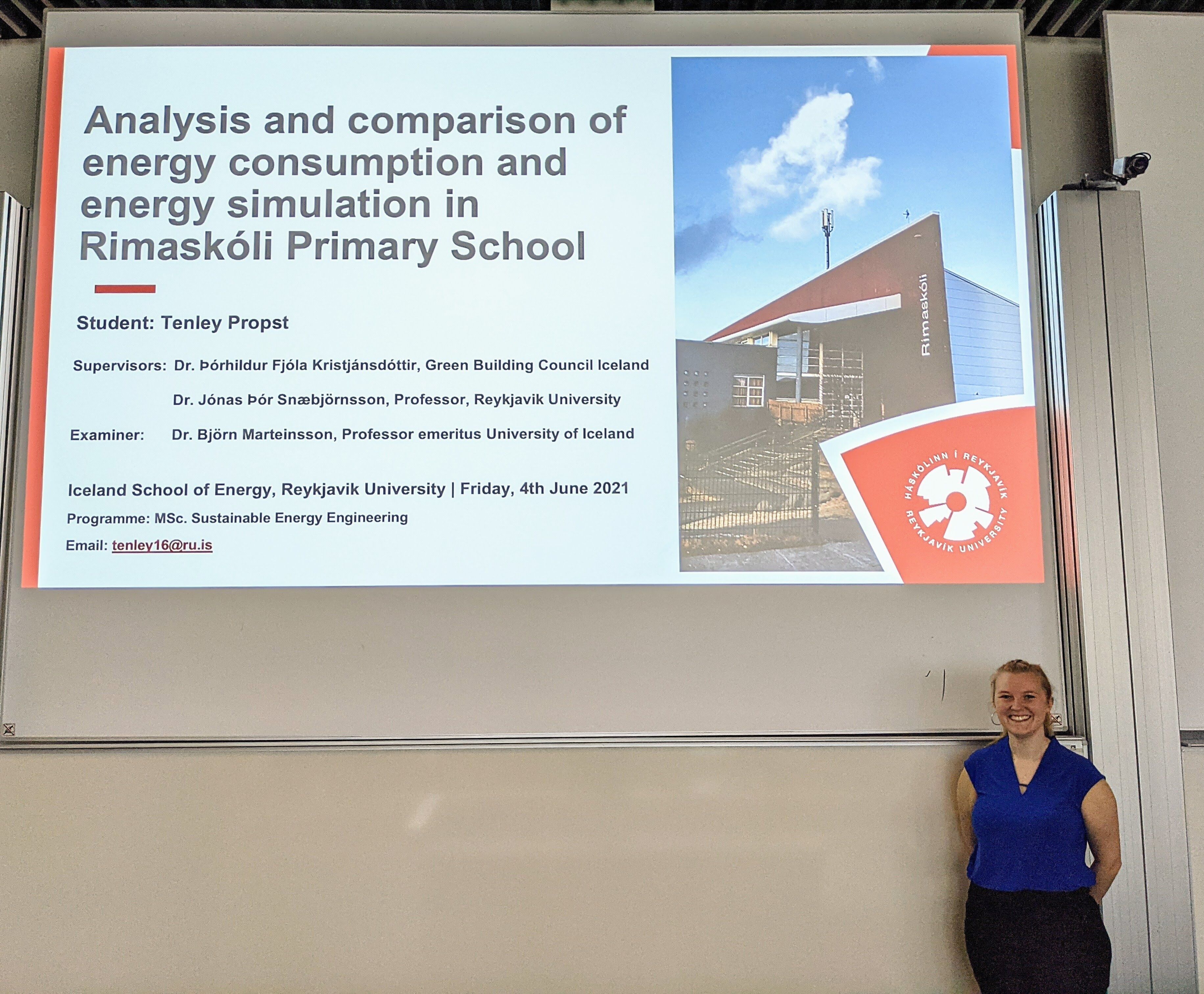MSc Thesis: Analysis and Comparison of Energy Consumption and Energy Simulation in Rimaskóli Primary School
REYKJAVIK, June 4 - MSc in Sustainable Energy Engineering candidate, Tenley Propst, successfully defended her master's thesis where she performed an analysis and comparison of energy consumption and energy simulation of the Rimaskóli Primary School. Tenley's work was supervised by Dr. Jónas Þór Snæbjörnsson from Reykjavik University and Dr. Þórhildur Fjóla Kristjánsdóttir from Green Building Council Iceland. With examination by Dr. Björn Marteinsson from University of Iceland.
 Tenley began by noting that as the world moves towards sustainable energy resources while dealing with the climate change and energy security, it is important to investigate the ways in which energy is consumed. In Iceland particularly, geothermal energy is abundant and utilized for district heating within buildings. However, in attempts to make the energy system even more sustainable, there must be analysis of where energy waste might come from in order to find accurate ways to prevent loss.
Tenley began by noting that as the world moves towards sustainable energy resources while dealing with the climate change and energy security, it is important to investigate the ways in which energy is consumed. In Iceland particularly, geothermal energy is abundant and utilized for district heating within buildings. However, in attempts to make the energy system even more sustainable, there must be analysis of where energy waste might come from in order to find accurate ways to prevent loss.
Tenley conducted a case study analysis, in which the heat energy consumption of Rimaskóli primary school is researched. With measured data on the return hot water temperature, inflow rate, and electricity consumption, she analyzed an estimate of the energy consumption patterns. Using design and utility drawings along with the measured data, Tenley constructed a simulation model using IDA-ICE simulation software. Heat energy consumption by radiators were modeled in the program, displaying results 12% higher then measured results.
To gain a further understanding of building energy performance, Tenley adjusted the control mechanisms for radiators and window openings. While automatic radiator and window control displayed the highest heat energy consumption values compared to other variations, the indoor air temperature achieved is closest to the thermal comfort setpoint of 21˚C. Changes to window glazing showed that a reduced Uvalue for windows will decrease the heat loss experienced by 32.5%. The absense of an exhaust ventilation system was simulated, yielding reduced heat energy consumption and heat loss.
Tenley's results indicate where further research on the measured data should be focused and its impact on the modeled results.
Congratulations Tenley for an excellent thesis defense!
